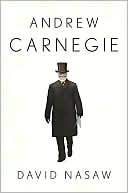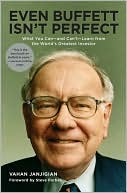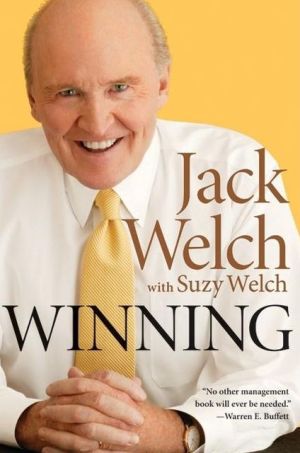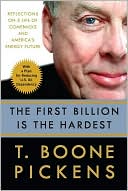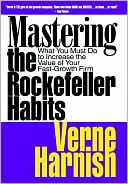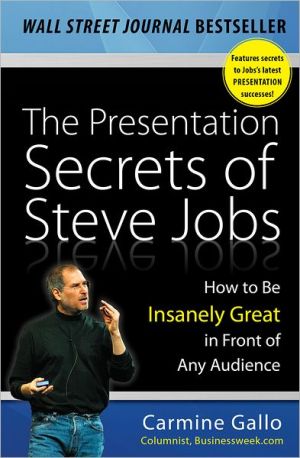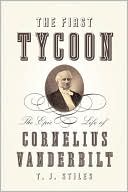Tough Choices: A Memoir
The New York Times bestseller by the most talked about woman in American business.\ For five and a half years, Carly Fiorina led Hewlett-Packard through major internal changes, the worst technology slump in decades, and the most controversial merger in high-tech history. Yet just as things were about to turn around, she was abruptly fired, making front-page news around the world.\ Fiorina has been the subject of endless debate and speculation. But she has never spoken publicly about crucial...
Search in google:
Behind the headlines-one of the most talked-about business leaders in the world tells her own story By accepting the CEO job at Hewlett-Packard, an iconic company that had lost its way, Carly Fiorina confirmed her status as the most powerful businesswoman in America. But she also made herself a target for everyone who disliked her bold leadership style and resented her rapid rise. For six years, as she led HP through drastic changes and a controversial merger, Fiorina was the subject of endless analysis, debate, and speculation. She appeared on the cover of every major magazine and her every word was scrutinized. Yet in all that time, the public never got to know the person behind the persona. Tough Choices will finally reveal the real Carly Fiorina, who writes with brutal honesty about her triumphs and failures, her deepest fears and most painful confrontations-including her sudden and very public firing by HP's board of directors. It's an amazing life story: Fiorina was a liberal arts major and law school dropout who didn't even consider a business career until her mid-twenties. But soon she was blazing through big jobs at AT&T and then Lucent Technologies, with a growing reputation as a creative, hardworking, visionary leader. Her career path would have been remarkable for anyone, but in an industry dominated by men, it was unprecedented. Tough Choices shows what it's really like to lead a major corporation in a time of great change while trying to stay true to your values. It's one woman's inspiring story, along with her unique perspective on leadership, technology, globalization, sexism, and many other issues. Publishers Weekly Fiorina may have had tough choices, but readers have an easy one: start at page 150 and read the Hewlett-Packard story first. As Carly Fiorina, the famously fired CEO of HP, vividly dissects the company's business, board and structural problems, her management views and talents are clearly visible. She also makes a compelling case for why she deserves some credit for the 2005-2006 turnaround. Less compelling are her claims that her introduction as CEO of HP was marred because "the one question we didn't prepare for was the question most frequently asked... about my gender." (Uh-huh.) When Fiorina dishes the board members, it's delish, especially when citing George "Jay" Keyworth's stated belief that "anyone who had leaked confidential Board conversations to the press shouldn't be allowed in the boardroom." (A wonderful irony since he initially refused to resign during the recent HP scandal when he was revealed as the source of confidential leaks.) Much of what Fiorina writes about the board will be in the news around this book's release, but her revelations are valuable beyond gossip because shareholders are demanding accountability from boards, it's fascinating to be inside a deeply dysfunctional boardroom. And it's just plain fun to see her settle some scores. The start of her memoir, however, is a tedious telling of her rise through the corporate ranks at AT&T and Lucent. It's not clear exactly what the business challenges were the main thing she emphasizes about Lucent is her fondness for the "bold, red logo." These early chapters are filled with numbing passages: "In other words, our value-add would be to get everyone on the same page. Any organization is stronger when people are aligned to act together, instead of working at cross-purposes." While I didn't come away with a sense of Carly Fiorina's personality much of what she writes about herself is unconvincing her book does shed light on the complexities of running a giant corporation. I also learned that I'd bought into media coverage of Carly Fiorina that was superficial at best and misleading at worst. I owe her an apology for that, and she owes her readers one for not hiring (or heeding) a good editor to make her message more riveting. (Oct. 9) Robin Wolaner is the founder of Parenting magazine, former CEO of Sunset Publishing and author of Naked in the Boardroom: A CEO Bares Her Secrets So You Can Transform Your Career (Fireside, 2005). Copyright 2006 Reed Business Information.
IN THE END, the Board did not have the courage to face me. They did not thank me and they did not say good-bye. They did not explain their decision or their reasoning. They did not seek my opinion or my involvement in any aspect of the transition. Having asked me to come to Chicago for a meeting, they left me waiting in my hotel room for more than three hours. As I waited, I knew whatever came next would be a turning point. After I finally received the call to rejoin the meeting, I thought about each Board member as I rode the elevator down past those twenty four floors. I didn't know what to expect, but I assumed I would be facing them. I wasn't prepared for the empty conference room I entered. Only the two designated messengers and a lawyer remained in the room. The chair of the Nominating and Governance Committee said, "Carly, the Board has decided to make a change at the top. I'm very sorry." I knew he had opposed my ouster. And then the new chairman said they wanted my help in "positioning" the news. She said they thought I should describe this as my decision: I should say I thought it was "time to move on." I asked when they wanted to make the announcement. "Right away." \ The meeting lasted less than three minutes. I asked for a few hours to think and I left the room.\ I believe the truth is always the best answer, whatever the consequences. Less than two hours later I sent a message to the new chairman saying we should tell the truth: the Board had fired me. When the announcement was made, I simply said, "While I regret that the Board and I had differences over the execution of the strategy, I respect their decision. HP is a great company and I wish the people of HP all the best."\ I had always known I might lose my job. I was playing a high-stakes game with powerful people and powerful interests, but I had not expected the end to come in this way. I knew we were on the verge of reaping tremendous benefits from all our hard work, and I thought the Board knew this too. I wanted so much to be able to gather my team one last time and tell them how proud I was of all we had accomplished together. My heart ached that I was not give an opportunity to say good-bye to the people of HP, whom I had grown to love.\ I knew the announcement would be big news. I was a woman, and a bold one at that, and things had always been different for me. All the criticisms that had ever been leveled against me would be recycled and thrown back in my face with new delight: "She's too flashy." "She's just marketing fluff." "She's too controlling." "She's a publicity hound." "The merger was her idea and it was the wrong thing to do." "She's imperious, vindictive and employees didn't like her." The coverage would go on and on, and the critiques would not be balanced against the facts or my contributions or the positive changes that had been made. It would be ugly and it would be personal.\ I knew all this as I steeled myself for the public announcement on February 9, 2005. The reality of the coverage was even worse than I had imagined. It hurt me, but it hurt my family and friends more. I felt lonely, but no lonelier than I'd felt for the past six years. I was deeply sad that fellow Board members I had known and trusted would not pay me the simple respect of looking me in the eye and telling me the truth. I felt betrayed when I considered that some Board members, having spoken outside the boardroom, had broken their duty of confidence to one another and to me.\ I felt all these things, but after a lifetime of fears I was not afraid. I had done what I thought was right. I had given everything I had to something I believed in. I had made mistakes, but I had made a difference. I was at peace with my choices and their consequences. My soul was still my own.
\ From Barnes & Noble"The worst thing I could have imagined happened. I lost my job in the most public way possible, and the press had a field day with it all over the world." The February 2005 ouster of Hewlett-Packard CEO and Chairman Carly Fiorina caused ripples in expected places; even Jay Leno joked at her expense. In Tough Choices, Fiorina speaks her mind about what it feels like to be the most powerful businesswoman in America one day, unemployed and the butt of jokes the next.\ \ \ \ \ Publishers WeeklyFiorina may have had tough choices, but readers have an easy one: start at page 150 and read the Hewlett-Packard story first. As Carly Fiorina, the famously fired CEO of HP, vividly dissects the company's business, board and structural problems, her management views and talents are clearly visible. She also makes a compelling case for why she deserves some credit for the 2005-2006 turnaround. Less compelling are her claims that her introduction as CEO of HP was marred because "the one question we didn't prepare for was the question most frequently asked... about my gender." (Uh-huh.) When Fiorina dishes the board members, it's delish, especially when citing George "Jay" Keyworth's stated belief that "anyone who had leaked confidential Board conversations to the press shouldn't be allowed in the boardroom." (A wonderful irony since he initially refused to resign during the recent HP scandal when he was revealed as the source of confidential leaks.) Much of what Fiorina writes about the board will be in the news around this book's release, but her revelations are valuable beyond gossip because shareholders are demanding accountability from boards, it's fascinating to be inside a deeply dysfunctional boardroom. And it's just plain fun to see her settle some scores. The start of her memoir, however, is a tedious telling of her rise through the corporate ranks at AT&T and Lucent. It's not clear exactly what the business challenges were the main thing she emphasizes about Lucent is her fondness for the "bold, red logo." These early chapters are filled with numbing passages: "In other words, our value-add would be to get everyone on the same page. Any organization is stronger when people are aligned to act together, instead of working at cross-purposes." While I didn't come away with a sense of Carly Fiorina's personality much of what she writes about herself is unconvincing her book does shed light on the complexities of running a giant corporation. I also learned that I'd bought into media coverage of Carly Fiorina that was superficial at best and misleading at worst. I owe her an apology for that, and she owes her readers one for not hiring (or heeding) a good editor to make her message more riveting. (Oct. 9) Robin Wolaner is the founder of Parenting magazine, former CEO of Sunset Publishing and author of Naked in the Boardroom: A CEO Bares Her Secrets So You Can Transform Your Career (Fireside, 2005). Copyright 2006 Reed Business Information.\ \ \ Soundview Executive Book SummariesBusiness Is About People\ After she appeared on the cover of Fortune magazine as "The Most Powerful Woman in Business," Carly Fiorina's mother told her, "Who knows? Maybe someday you'll become the CEO of Hewlett-Packard." Her mother's comment surprised Fiorina, considering the mother and daughter had never spoken of the company. Fiorina's response was "Well that's never going to happen!" \ Following that conversation, she received a phone call from HP board member Jeff Christian in February 1999; nonetheless, Fiorina was almost certain the HP board would not offer her the available CEO position for a number of reasons: She had never held the position before, she did not have a background in engineering, she wasn't from the industry and she was a woman. On July 19, 1999, Fiorina was proved wrong as HP publicly announced her succession of Lewis Platt as CEO.\ Law School Dropout to CEO\ After earning her B.A. in medieval history and philosophy from Stanford University, Fiorina completed a short stint at UCLA Law School, dropping out after she realized that law wasn't the career for her and that she couldn't always please her parents with her choices.\ Fiorina joined the business world, spending her first 20 years cutting her teeth and climbing the corporate ladder at AT&T and Lucent Technologies before accepting the challenge to lead, as CEO and eventually as chairman, the technology giant Hewlett-Packard. To many people she had seemed an unlikely candidate, but Fiorina managed to lead HP through a number of large internal changes, a significant technology slump, and the Compaq merger, which is considered one of the most controversial mergers in the industry.\ While many remember the former Hewlett-Packard CEO as the woman who opted for 7,000 layoffs during the 2001 business downturn, Fiorina positions herself more sympathetically in the book, proclaiming her belief that "in the end, business isn't just about numbers; it's about people." She was not the only one behind terminations at the company. She writes, "One of the great myths of HP was that employees never lost their jobs. The truth was Bill [Hewlett] and Dave [Packard] fired people when they thought it was deserved."\ Leadership Has Nothing to Do With Title\ Throughout the book, Fiorina offers her business wisdom and personal advice in a palatable style. While at AT&T, one of the women engineers in Fiorina's team came to her, conflicted over raising a family as well as maintaining a career. Fiorina told her, "You cannot sell your soul. Don't become someone you don't like because of the pressure. Live your life in a way that makes you happy and proud. If you sell your soul, no one can pay you back."\ In reference to her time spent at Lucent and the leadership roles she experienced, Fiorina claimed,"I have believed all my life that leadership has nothing to do with title or position. Leadership is about the integrity of one's character, the caliber of one's capabilities and the effectiveness of one's collaboration with others. Anyone can lead from anywhere at any time."\ On February 9, 2005, Fiorina was fired by the HP board. She writes, "Life isn't always fair, and I was playing in the big leagues. Yet I realized I had no regrets ... I had made mistakes, but I had made a difference."\ Why We Like This Book\ For those readers who have not followed Fiorina's career - most notably her termination from HP - Tough Choices provides a relatable tale that anyone could enjoy, male or female, business savvy or not. Using her straightforward style, Fiorina allows readers into her life, showing them her professional achievements over the decades and drawing them into her personal life as a daughter, wife and stepmother. Copyright © 2007 Soundview Executive Book Summaries\ \ \ \ \ \ Richard WatersStill bent on self-justification and revenge, the book lacks a proper dose of self-awareness and humility. Yet it still serves as a reminder of the undeniable courage and talents of one of the most notable business leaders—male or female—of recent years.\ —Financial Times\ \ \ \ \ Tom PerkinsA very engaging read. If Horatio Alger had written a gender-correct sequel to Tom the Bootblack, this is what you might expect.\ —BusinessWeek\ \


